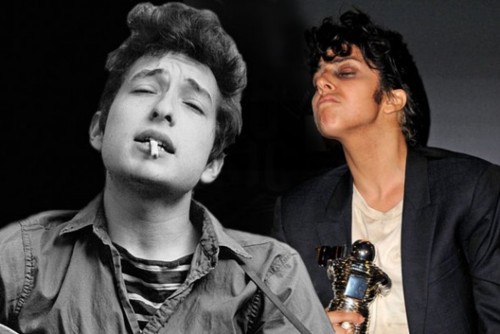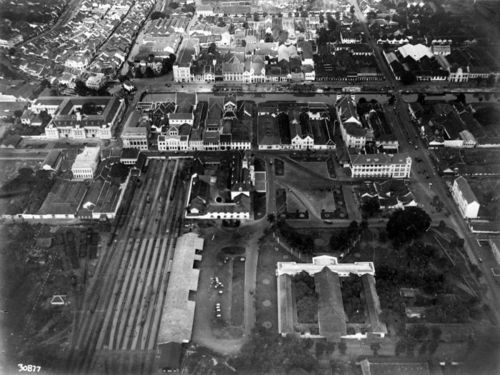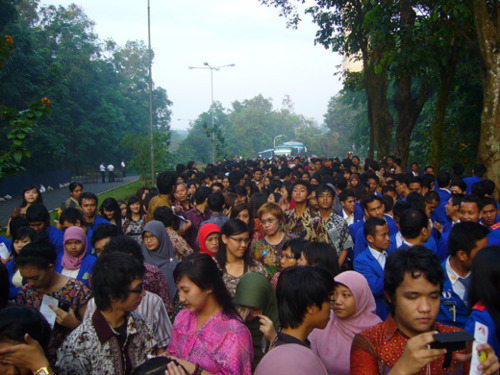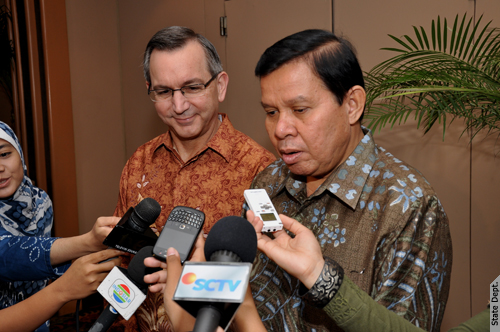Listening to Our Mothers
from Essays
Remarks on the 60th anniversary of the Fulbright program in Indonesia and the 20th anniversary of AMINEF, the American-Indonesia Exchange Foundation.
Sunday, May 6th, 2012
Jakarta, Indonesia.
Happy Birthday to Fulbright in Indonesia!
I bring you greetings from President Obama, Secretary of State Clinton and the Fulbright Foreign Scholarship Board, on which I am honored to serve.
The American-Indonesian Exchange Foundation turns 20 this year and the Fulbright program in Indonesia goes back 60 years, to 1952.
20 and 60. The Net Generation and the Baby Boomers.
Forgive those American analogies. This is my third short trip to Indonesia, but you can tell I wasn’t a Fulbrighter, can’t you?
So let me revise that just a little: I was reading in the Jakarta Globe about American pop stars who’ve performed in Indonesia … or are coming any day now. So at 20 and 60, Fulbright manages to be both a Dylan fan and one of Lady Gaga’s little monsters. I think we call that cultural diplomacy.

Our mood tonight is celebratory. But let me offer a few reflections about this extraordinary shared experience our two great democracies are engaged in.
I’d like to begin in 1952, when the first Fulbrighter from Indonesia left on a steam ship for America. He was a chemical engineer.
In 1952, the population of Jakarta was one and a half million people. It only takes five minutes in traffic to realize that was a tiny village compared with today. Now, Jakarta has more than ten times the people. Now, everyone idles in cars or careens around on motorbikes. But the first American Fulbrighters who came here most likely made their way through the streets pedaled around on Bekaks. I got to ride in them on some harrowing trips before they were banned a few years ago. In the 1950’s, they were everywhere. Imagine 160,000 exercycles out in the rain and heat. Indonesia participated in the Olympics for the first time in 1952. Surprising that it was for badminton and not for cycling.

1952, in the early years of independence, was a tense, complicated time in Indonesia. The first Fulbright exchange took place. But so did the Mutual Security Agreement with the US, which led to demonstrations and tanks surrounding the presidential palace and then the resignation of the Sukiman cabinet.
1952 wasn’t quiet elsewhere in the world either. The Big Bang theory was first proposed. The Diary of Anne Frank was published. The polio vaccine was created.
In England, Princess Elizabeth became Queen Elizabeth. In India, Sister Theresa became Mother Theresa. In South Africa, Nelson Mandela was arrested.
In the United States, Dwight Eisenhower was elected President and the Republicans gained control of the White House and both houses of Congress.
I certainly don’t want to interject politics into the evening, but I told one of President Obama’s campaign advisors that I was going to say that and he said I should tell you that 2012 will not be a Washington repeat of 1952.
Perhaps my favorite marker of that year comes from my own hometown of New York City: the first “Don’t Walk” signs were installed in 1952. People have been ignoring them ever since.
Fast forward to 1992 and we had a major advance in the Fulbright program with the establishment of the American-Indonesian Exchange Foundation. Congratulations to the AMINEF team for the extraordinary job they’ve done.
Susi Susanti won Indonesia’s first Olympic gold medal in 1992. Again, badminton, not cycling.
The European Union was founded. The Earth Summit was convened. The space shuttle took its maiden voyage.
The Queen of England was still Elizabeth, but in 1992 she started paying income tax. She hasn’t been the same since.
Bill Clinton was elected President in 1992.
And apartheid finally ended in South Africa.
Some things change. Dramatically. Some stay the same.
One thing that stays fundamentally the same is the Fulbright program’s commitment to bringing Indonesians and Americans together to share both our histories and our new ideas, to share cherished beliefs and to dwell respectfully in our differences, differences we only really understand when we live and work together, when we know the satisfactions of complicated problems solved together or simple moments of good food, good humor, good times together.
Tonight is one of those good times.
Fulbright students and scholars have shared the modest and the nearly-miraculous. 3,000 Indonesians and Americans between our two countries over the years. Stories of brilliance, success and accomplishment. Many of these Fulbrighters are with us here tonight. Please, let’s give them a round of applause.
Fulbright has been a success. But we must do more. Countries as large as ours, partnerships as important as ours in a world as fraught and complicated and interdependent as ours, must expand their efforts to share knowledge, to teach our children, to solve the challenges of poverty and pollution, to find common purpose in the diversities of our faiths and traditions, to work for peace.

And on this wonderful anniversary, I am happy to report that we are doing more. Both of our governments, both of our presidents have expressed strong commitment to growing the Fulbright exchange. It is a mutual commitment, a mutual partnership. And it is now one of the largest Fulbright programs in the world. This year, 300 students and scholars will participate in the exchange between the United States and Indonesia. That’s ten percent of the entire history of the program just this year.
So I have come to celebrate with you, to congratulate Michael McCoy and the dedicated staff of the American-Indonesian Exchange Foundation and to thank the many honored guests here tonight.
Let me give a special thanks to our hosts, Ambassador Scot Marciel and his wife Mae. If anyone embodies the values of the Fulbright program, it is Ambassador Marciel. I have traveled to many countries and talked to many ambassadors. No one is more passionate about expanding opportunities for education than Scot Marciel. He is truly an education ambassador.

Speaking of education, perhaps my greatest lesson as I travel and speak around the world about Fulbright comes from my wonderful mother. If she were here in the audience, she would be looking up impatiently at me right about now. “Remember,” she has told me when she sees me speaking, “there are three rules when you get in front of an audience. Be brief. Be sincere. And be seated.”
We should always listen to our mothers.
Thank you all.